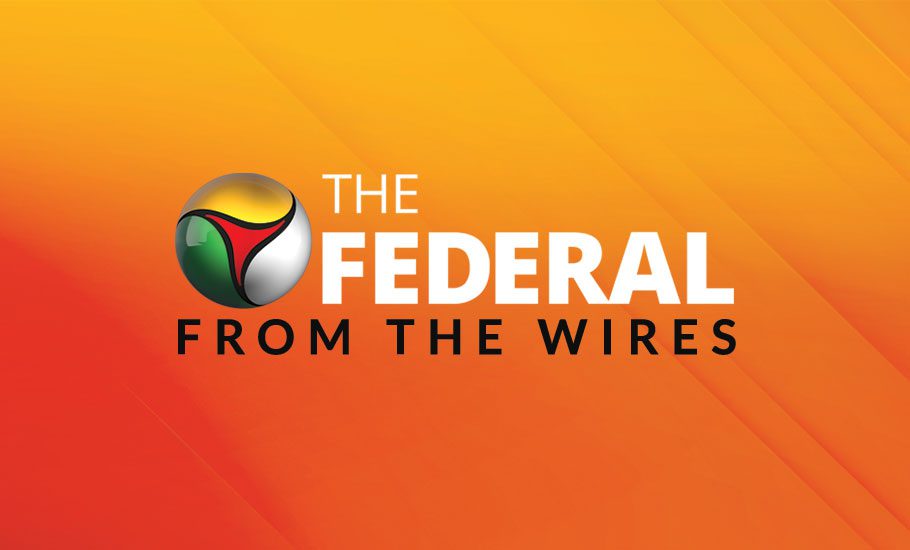
IMF: Vaccine inequity threatens Mideasts economic recovery

Middle East economies are recovering from the coronavirus pandemic faster than anticipated, largely due to the acceleration of mass inoculation campaigns and an increase in oil prices. But the International Monetary Fund warned Sunday that an uneven vaccine distribution would derail the regions rebound, as the prospects of rich and poor countries diverge. In its latest report, the IMF again revised upward its 2020 economic outlook for the Mideast and North Africa, now outlining just a 3.4% contraction last year, with growth for the regions oil exporters buoyed by a boom for commodities and rise in oil price, which hit $67 a barrel in March. Even with an expected dip to $57 a barrel by the end of 2021, the surge from last years all-time lows is boosting the oil-rich nations of the Persian Gulf, such as the United Arab Emirates and Saudi Arabia, which also have moved swiftly toward widespread vaccination. But elsewhere in the region, from Yemen and Sudan to Libya and Lebanon, where inflation soars, instability prevails and wars have left lasting scars, the damaging effects of the pandemic will drag on and cause economic harm, the IMF said possibly for years to come. We are a year into the crisis and recovery is back, but it is a divergent recovery, Jihad Azour, director of the Middle East and Central Asia department at the IMF, told The Associated Press. We are at turning point. … Vaccination policy is economic policy.” The IMF expects economic growth to reach 4% for the Middle East this year. But that rosy outlook papers over the regions deep economic divides. For oil-rich economies, yawning deficits are expected to halve this year as revenues climb, more arms get jabbed and lockdown measures recede, said Azour. Thanks to strong government management of the virus successive waves and the jolt in oil prices, Saudi Arabias economy will expand 2.9% compared to last years contraction of 4.1%. Higher oil prices come as the Organization of the Petroleum Exporting Countries (OPEC) and its allies keep a lid on production and it seems unlikely that the US will quickly lift sanctions on Irans critical oil sector. The IMF expects the UAEs economy to grow this year by 3.2%, with Dubais World Expo, now rescheduled for October 2021, key to the nations recovery. Dubai hopes the massive event will draw 25 million visitors and a series of deals, heralding a bright post-pandemic future. The UAE has launched among the worlds fastest inoculation campaigns, with over 90 doses administered per 100 residents as of this week. Still, the collapse of hospitality, tourism and retail presents challenges for glitzy Dubai, where a cascade of layoffs hit foreign workers and slashed the emirates population by 8.4%, according to ratings agency S&P Global. The outlook is bleaker for fragile and developing economies, many with lagging vaccination campaigns, few resources for fiscal stimulus and revenues drawn heavily from sectors like tourism that have been slowest to recover from the pandemic. Whereas rich countries plan to vaccinate most of their population in a few months, swaths of the region from Afghanistan and Gaza to Iraq and Iran likely wont inoculate a significant portion of their populations until mid-2022, the IMF said. Even that estimate may be optimistic. The regions lowest-income countries could end up waiting until 2023 at the earliest for mass vaccination, according to the report. Meanwhile, many countries beleaguered health systems are straining under resurgent waves of infections, prompting authorities to impose new restrictions and inflict more economic pain.
The IMF expects a sluggish 2021 recovery for Egypt and Pakistan, oil importers reliant on tourism that saw an exodus of foreign investors last year. The fund revised down its growth estimate for Jordan, where the youth unemployment rate has skyrocketed to 55%. Sudan remains mired in debt and threatened by instability, but its economy could grow for the first time in years as it gains new access to international financial networks. Lebanon, in the midst of its worst financial crisis ever, remains the only Mideast economy at risk of further contraction. The country has defaulted on its foreign debt and failed to implement economic reforms, let alone form a government. A giant explosion at the Beirut port last year wreaked havoc on the capital. Discussions with the IMF led nowhere after the Cabinet quit. Azour declined to even offer a specific economic forecast for Lebanon this year, citing all the uncertainties. In Iran, the IMF found reason to praise economic growth after years of decline, noting that the governments resistance to virus-induced lockdowns that would have devastated its sanctions-hit economy had saved it from the worst of the pandemics fallout. The countrys economy is expected to grow 2.5% in 2021, Azour said, building on slight gains last year. But Irans recovery remains far off as its vaccinations lag, inflation eliminates peoples savings and economic policies overlook the most vulnerable. The IMF continues to consider Irans $5 billion assistance request, which would be its first loan since 1962. Meanwhile, American sanctions remain in force as torturous discussions begin over a return to Tehrans tattered 2015 nuclear deal with world powers.
(Except for the headline, this story has not been edited by The Federal staff and is auto-published from a syndicated feed.)


